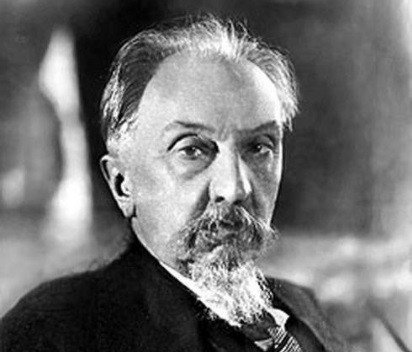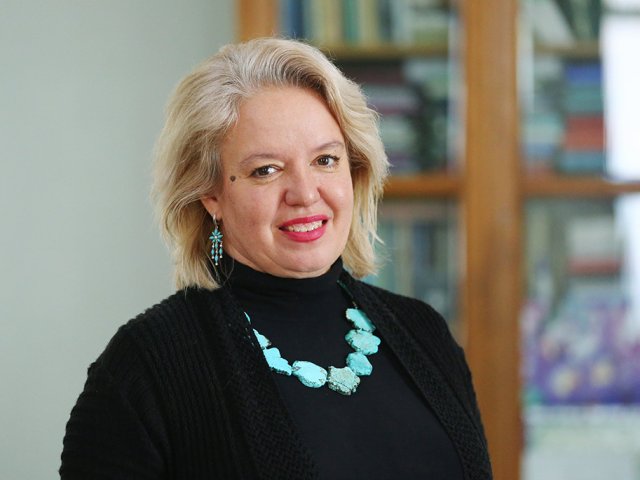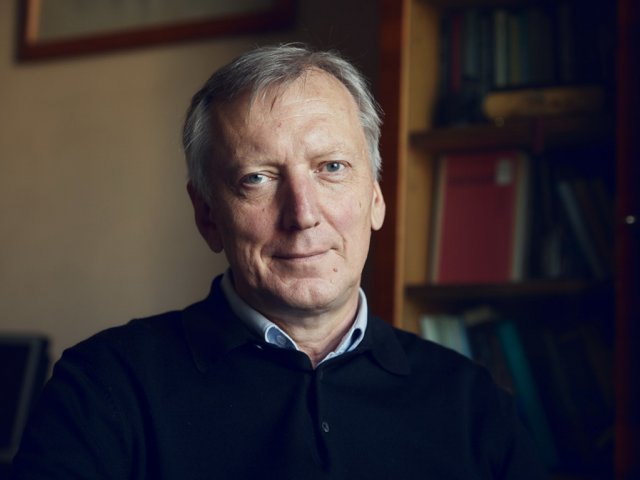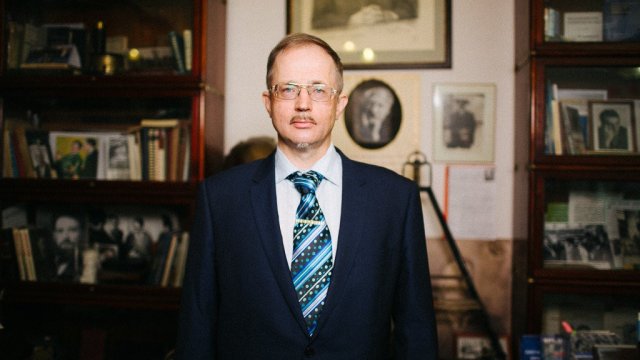Official:
Lev Vladimirovich Shcherba. February 20 (March 3), 1880 – December 26, 1944. Russian and Soviet linguist, academician of the Academy of Sciences of the USSR. Specialist in general language studies, Russian, Slavic languages, and French.
Life and Work:
1. In a detective story by Alexandra Marinina turned into a film, there is a character named Bokr. He did not invent this unusual nickname himself, but stumbled upon it in a book he borrowed from the prison library. The book was titled Word about Words, and its author, Lev Vasilyevich Uspensky, was once a student of the famous Russian linguist Lev Vladimirovich Shcherba. The very person who invented the famous phrase: “Glokaya kuzdra shteko budlanula bokra i kurdyachit bokryonka.”
2. The future academician and recognized linguist was born in 1880 in the small town of Igumen of the Minsk Province, which is now called Cherven.
3. Being an engineer’s son, he grew up in Kyiv, where he first entered the Natural Sciences Department of the University of Kyiv. However, the language took over, and after moving to St. Petersburg with his parents, Lev Shcherba transferred to the History and Philology Department of St. Petersburg University.
4. Shcherba was taught by the famous linguist Jan Niecisław Ignacy Baudouin de Courtenay and later wrote a work about his mentor, in which he spoke highly about Baudouin de Courtenay’s pivotal role in the Russian language studies.
5. The disciple was worthy of the great mentor. Before the revolution and World War I, Lev Shcherba had a chance to study in Europe: he studied grammar, phonetics, and comparative historical linguistics in Leipzig, Prague, and Paris. As Baudouin de Courtenay taught him, he researched live languages and dialects.
6. Upon returning to Russia, he began to teach and pursue science: in 1909, Lev Vladimirovich created a laboratory of experimental phonetics at St. Petersburg University, which later was named after him.
7. Three years later, in 1912, Lev Shcherba defended his master’s thesis Russian Vowels in Qualitative and Quantitative Terms. The thesis was published and enjoyed great demand: inexperienced readers did not recognize the vowels to be the usual and well-known letters of the alphabet. People who bought the book were looking for sensational exposures: at that time, elected members of the City Duma or Zemstvo Assembly were called “glasnye” as well.
8. Lev Shcherba is rightly considered one of those who created the theory of the phoneme, that is, the minimum semantic language unit. Baudouin de Courtenay started to develop this theory, but Lev Vladimirovich also made a considerable contribution – he improved on the theory and created the so-called Leningrad Phonological School.
9. After the revolution, Lev Vladimirovich did not abandon science and teaching. According to encyclopedias, corresponding member and then academician Lev Shcherba made a great contribution to the development of psycholinguistics, lexicography, and phonology.
10. Shcherba invented the famous glokaya kuzdra phrase in the late 1920s. Not from idleness, but with an actual scientific purpose.
11. Kuzdra and bokry served as a vivid proof that bare vocabulary without grammar does not constitute a language. Absolutely meaningless words combined into a sentence allow one to understand what is being said. Look, it is clear: a certain female being (kuzdra) – and not just a plain one but with a certain characteristic (glokaya) – did something (budlanula) in a certain way (shteko) to a certain male being (bokr). Then she started and still continues to do something with his cub – kurdyachila and kurdyachit bokryonka. The sentence contains everything it should: all the basic parts of speech – nouns, adjectives, verbs, and an adverb – as well as all the sentence parts.
12. Lev Shsherba expressed the idea that vocabulary was helpless without grammar in Suvorov-like precise and concise manner: vocabulary is a mad thing, only grammar knows what it is about.
13. Among Lev Shcherba’s contributions are the concepts of negative language material and linguistic experiment, which he introduced into science. He believed that when conducting an experiment, it is important not only to use supporting examples – that is, to show how a language is spoken – but also to systematically consider negative material – how a language is not spoken. Shcherba wrote: “...negative results are especially instructive: they indicate either the incorrectness of the postulated rule, or the need to restrict it in some way, or that the rule no longer exists, but there are mere dictionary facts, etc.”
14. According to Shcherba, negative language material is an important source of information about the language.
15. During the war, Lev Shcherba and his entire big family were evacuated to Molotovsk (presently called Nolinsk), Kirov Region. Life was extremely hard there, but in his letters to colleagues, Lev Vladimirovich complained mainly about being unable to get books on his professional field.
16. In 1943, the scientist returned from the evacuation to Moscow, where he was elected an academician. He taught a course at Moscow University, but dreamed of going back to Leningrad, to his alma mater. It seemed that these dreams would come true: Shcherba was invited to head the Department of General Phonetics at LSU.
17. Yet, a disease ruined all the plans. Shcherba did not survive a serious surgery and died in 1944.
18. Awaiting the surgery, he wrote the article Current Problems of Language Studies. Now this work is considered Lev Shcherba’s testament. Under the current important problems, he meant, in particular, the issues of bilingualism, ambiguity of traditional typological classifications, and uncertainty of the concept of “word.” “As a concept, the word does not exist at all,” Shcherba wrote in this article.






















